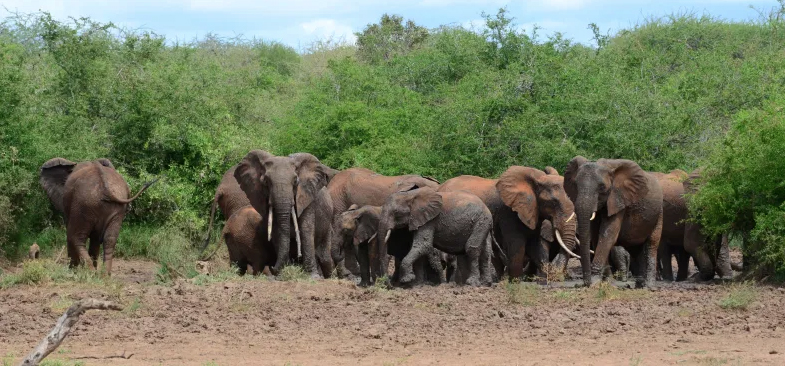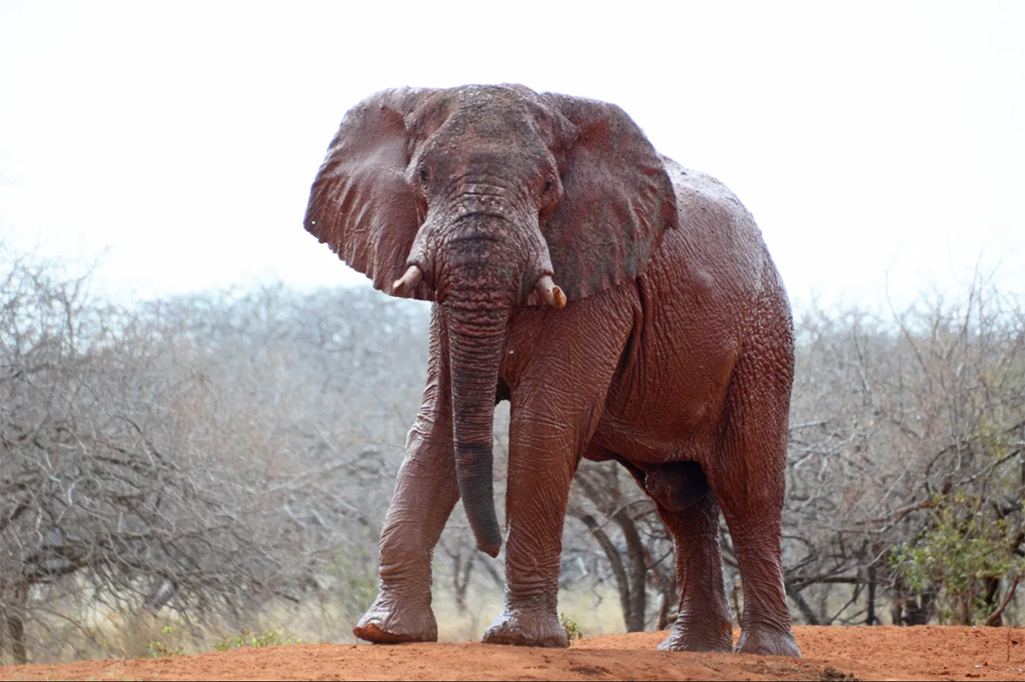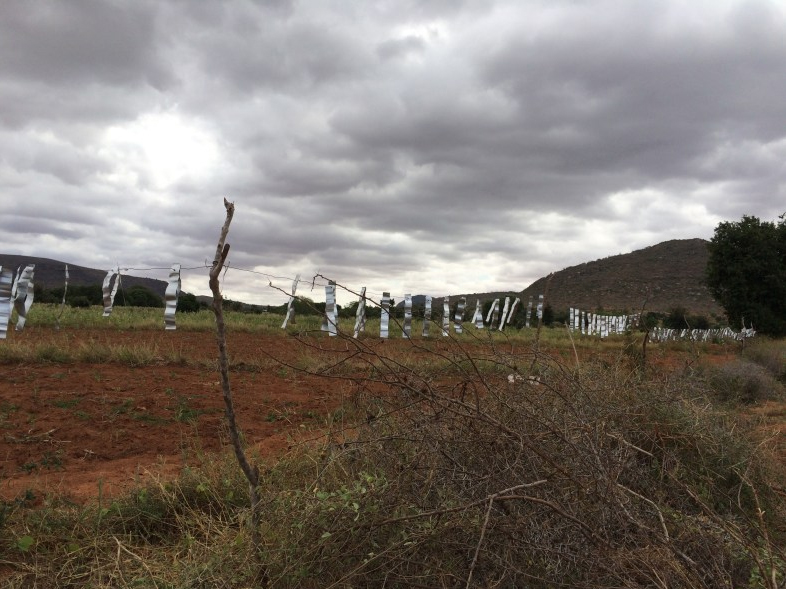.
How Bees And ‘Chili Grenades’ Can Prevent Human-Elephant Conflict
By Connor Spach, Earthwatch Communications Intern
.

.
A strobe light, a roman candle, and a “chili grenade” (which, for those of you who are unfamiliar with the term, is a condom filled with chili powder, small rocks, and a firecracker)—these “repellents” might be methods to save not only your crops, but an elephant’s life, according to research being conducted throughout Africa and Asia. One such research study is Earthwatch’s new expedition: Elephants and Sustainable Agriculture in Kenya, led by Dr. Bruce Schulte.
Bruce has spent over 20 years working with elephants, and beginning in 2017, he will launch this new Earthwatch project, in part to help reduce human-elephant conflict (HEC) in Kenya. Elephants have come into conflict with farmers by eating or damaging crops as farms expand and elephant habitat dwindles.
Another important focus of the study will be on land conservation by implementing the latest methods in sustainable agriculture and forestry. Climate change has resulted in extreme weather events, threatening agricultural production in sub-Saharan Africa. The project aims to find ways around these agriculture impediments by using climate-smart agriculture—a method that reduces pesticide and herbicide use and supports crops that are resistant to climate change while improving soil, land, and water management systems. The soil in this region lacks nutrients and water, and can only sustain agricultural life for a brief period causing farmers to travel deeper into the bush for healthier soil.
.

.
As farmers shift their agriculture practices into elephant habitat, HEC has increased. Elephants are crucial to the maintenance of their environments by regenerating forests through seed dispersal and trail generation, as well as serving as an important source economically for African tourism. To better protect this species while supporting local farmers and their livelihoods, researchers are testing the effect of repellents on the elephants.
“One of the problems with elephants is that because they are highly intelligent, social, and long-lived animals, they have the ability to problem solve and retain knowledge,” Bruce said. “Through this project, a multifaceted solution will be found.”
Bruce has been experimenting with a number of natural repellents such as strobe lights or natural sound projection ranging from lions roaring to helicopters flying overhead. Although because of their natural intelligence, elephants have learned these repellents have no negative effect on their well-being and begin to ignore them after several interactions. Other repellents used are beehive fences and chili grenades, which remain effective because the elephant will associate being stung or inhaling a foul scent when crossing onto farms.
.

Aluminum strip fences are another method of repelling elephants from raiding crops.
.
On average, elephants destroy 10 to 15 percent of a crop yield in one raid, and sometimes as much as 100 percent. By experimenting with repellents along with agricultural practices, Bruce’s project will reduce HEC and work to develop agricultural models alongside local and national officials to broaden conservation practices that will benefit this terrain. If successful, this will ensure stable agriculture and allow humans and elephants to live harmoniously.
“The goal is to make this bigger than any one individual, or group,” Bruce said. “The idea is to establish enough connections with the local people—all the way up to the Kenyan government—to get these practices to become sustainable.”
.
Sign up for the Earthwatch Newsletter
Be the first to know about new expeditions, stories from the field, and exciting Earthwatch news.